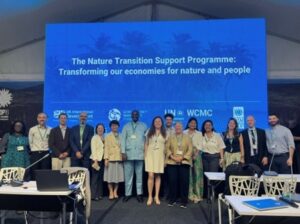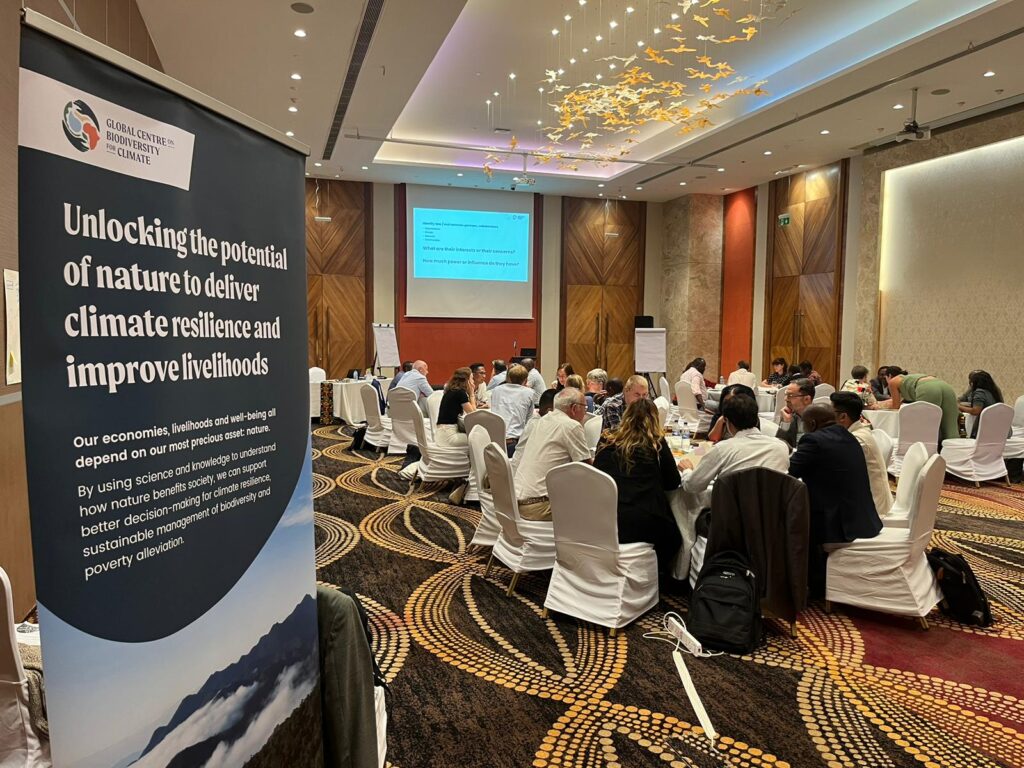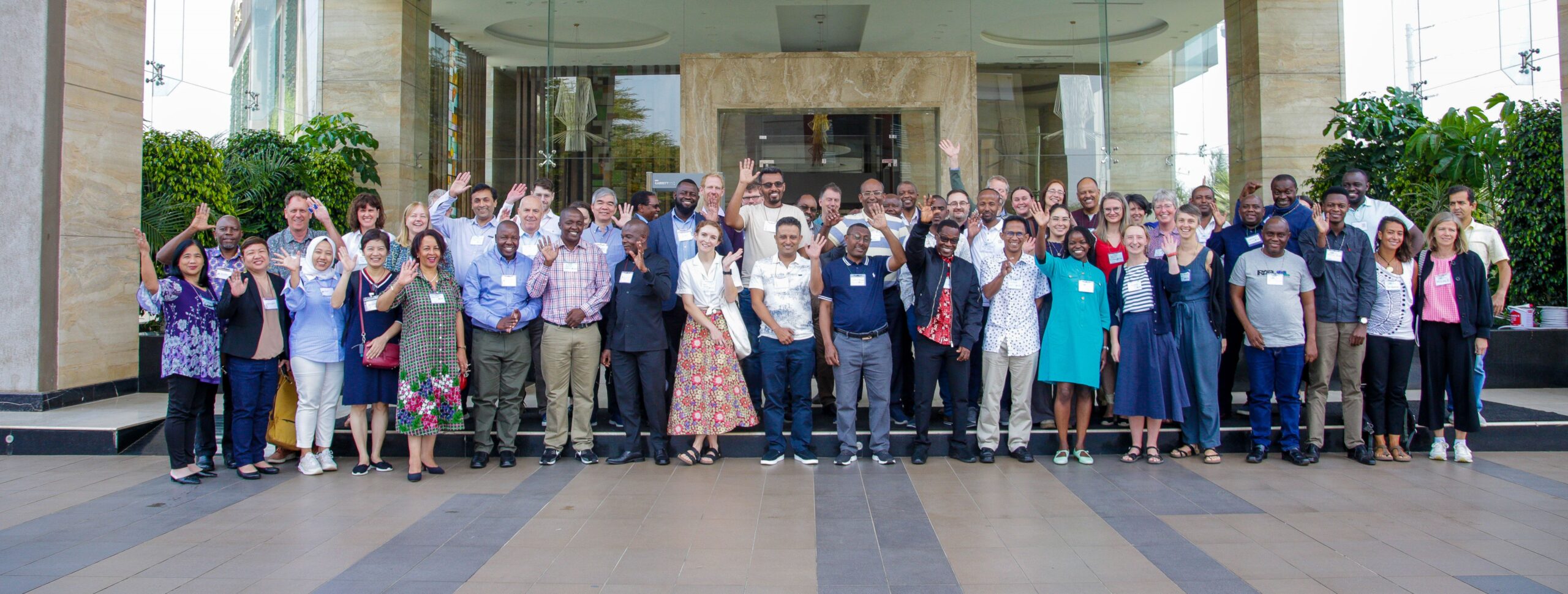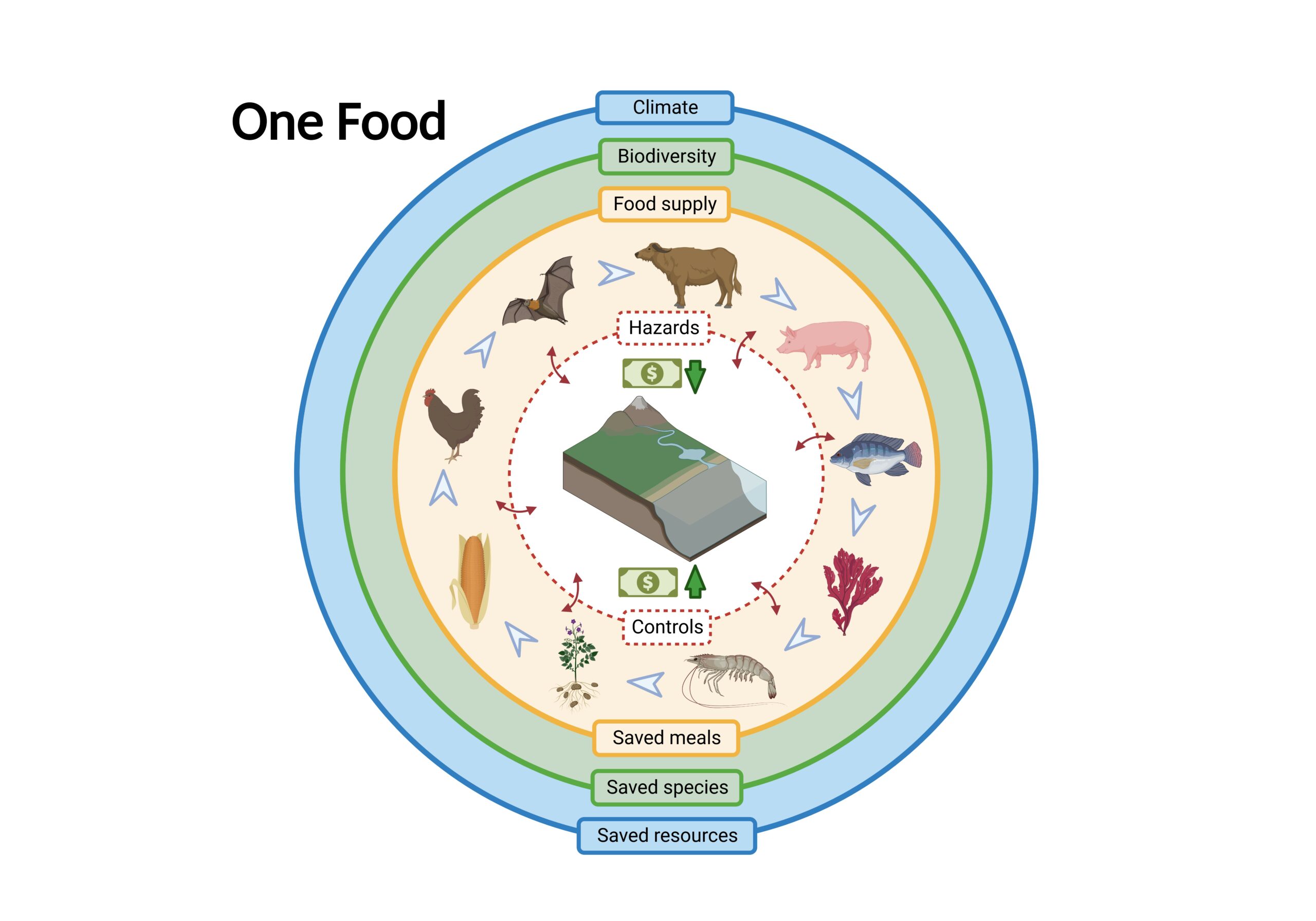RGC2 awards 18 new project grants worth £13.4 million based on the theme: “Driving innovation in how biodiversity can support climate resilience and sustainable livelihoods through practice and governance”.
Initial concept note applications for the second GCBC research grant competition (RGC2) numbered 507 from lead delivery partners in 60 UK-ODA eligible countries. This response more than trebled the 155 applications submitted for the first round of grants in 2023. From the initial concept notes, 56 applications were selected to submit full proposals.
Grant awards were made using several criteria, including applications’ contribution to the context of the RGC2 theme. These involved assessing applicants’ understanding of how addressing evidence gaps in the potential of nature-based solutions using less utilised species (plants, animals, insects, fungi, trees etc.) can contribute to:
- improving poor livelihoods through more resilience to climate change;
- meeting resource or service demands; and
- protecting and conserving traditional knowledge and biodiversity.
Filling these evidence gaps is critical to finding innovative approaches to guide practice and governance.
Climate change, biodiversity loss and poverty are three of the most pressing challenges facing the world today and are fundamentally inter-linked. Climate change, driven by human activity, is increasingly and negatively affecting people and the natural environment. Biodiversity loss, which also results from human activity, is causing degraded landscapes and soil and increasing food insecurity. This exacerbates climate risk by reducing the resilience of natural and managed ecosystems. Unfortunately, those living in poverty are often the most vulnerable and the least able to respond to the impacts of climate change and biodiversity loss.
By working in partnership with scientists, research institutions and practitioners around the world, the GCBC seeks to develop innovative research and scalable approaches to the conservation and sustainable use of biodiversity. This will have an impact on ecosystem resilience to climate change, halting and reversing biodiversity loss, contributing to poverty alleviation and helping countries to achieve a nature-positive future. The GCBC is funded by the UK’s Department for Environment, Food and Rural Affairs working in partnership with DAI as the Fund Manager Lead and Royal Botanic Gardens, Kew as the Strategic Science Lead.
The 18 projects awarded under RGC2 will be implemented in 16 UK ODA-eligible countries in the Global South; seven countries from Latin America (including Central America) and the Caribbean (Brazil; Colombia; Ecuador; Dominican Republic; Guatemala; Panama; Peru); six from Sub-Saharan Africa (Democratic Republic of Congo; Ethiopia; Ghana; Kenya; Tanzania; Republic of Congo); and three from South East Asia and the Pacific (Cambodia; Indonesia; Vietnam).
Eleven of the RGC2 projects cover broad thematic areas: Agroforestry; Community led approaches; Integrated land / water management; and Forest restoration. Seven of the projects cover more uniquely focused research areas: Seagrass restoration; Carbon markets; Biodiverse seed bank; Mangrove restoration; Peatlands; Land use (landscape level); and Underutilised species for soil restoration.
“This new round of 18 diverse and innovative projects represents a consolidation of the ‘Global Centre on Biodiversity for Climate’ as Defra’s flagship ODA R&D programme. These new projects will continue GCBC’s growing reputation for delivery of high-quality evidence about the effective and sustainable use of biodiversity for climate resilience and to improve livelihoods.” said Professor Gideon Henderson, Chief Scientific Adviser, UK Department for Environment, Food and Rural Affairs.
“As fund management lead, DAI is delighted to continue our relationship with Defra and especially to welcome the successful applicants who are joining the GCBC’s project portfolio for the next phase of the programme’s development. Through this project round, we will continue to support scientists, academics and research institutions working to build stronger capacity, increase collaboration, deliver high-impact projects and share learning on the biodiversity-climate-livelihoods nexus that will have an impact on ecosystem resilience to climate change, halting and reversing biodiversity loss and contributing to poverty alleviation,” said Luqman Ahmad, Senior Vice President, DAI.
“As strategic science lead, the Royal Botanic Gardens, Kew also welcomes the new projects to the growing portfolio. The new evidence, data and knowledge across pressures/drivers, solutions and enablers for the different themes of the grant competitions will support the adoption of systems approaches in tackling the nexus of climate, biodiversity and livelihoods. By understanding and managing the complex interactions between science, society and the multiple interacting systems through temporal and spatial scales it will be possible to recommend solutions – orientated approaches for transformative change across different sectors and regions,” said Professor Monique Simmonds, Deputy Director, Science (Partnerships), The Royal Botanic Gardens, Kew.







